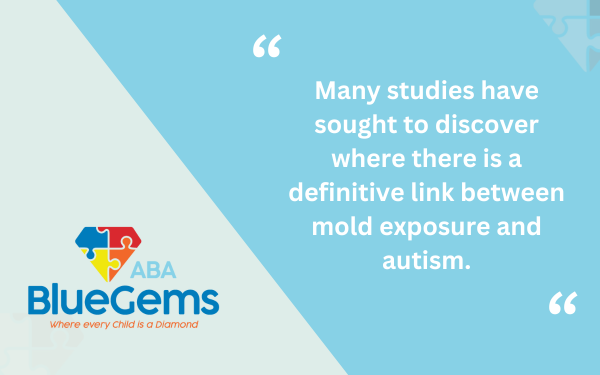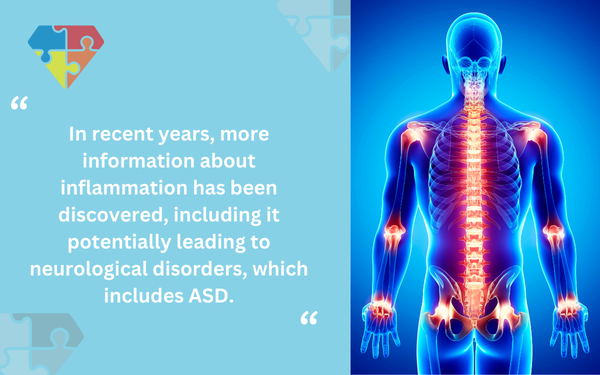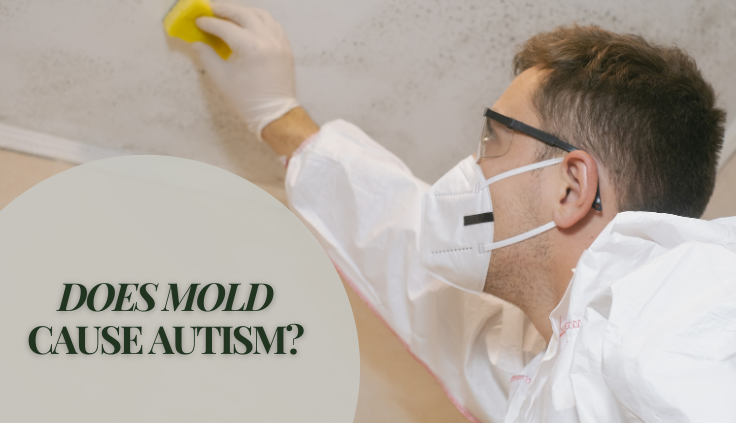Does Mold Cause Autism?
Our understanding of autism spectrum disorder (ASD) has evolved and advanced significantly over the last 25 years. We now know that different children are affected by it in different ways, though it typically affects their behavior, social interactions and communication skills.
We know some effective ways to provide support to children on the autism spectrum, such as applied behavior analysis, or ABA therapy. We also have more advanced screening tools that help with early detection of signs and symptoms, as well as more accurate ways to diagnose the neurodevelopmental disorder.
Yet, there is still much that we don’t know about autism, including a full picture of what can potentially cause ASD. Some have posited that mold exposure could be a contributing factor to autism, but is that true?
Right now, research is ongoing into the topic of whether mold can cause autism. We’ll discuss the link between mold and autism to shed more light on the topic.
Table Of Contents
What Have Studies Discovered about Mold and Autism?
Many studies have sought to discover where there is a definitive link between mold exposure and autism.

One study published in 2013 in the journal Environmental Health Perspectives found that exposure to mold in their first year of life or while the mother while pregnant could result in an increased risk of having ASD.
Other research has made similar conclusions about the exposure to mold, whether by a pregnant mother or directly by an infant, and the increased risk of developing ASD.
At the same time, other studies have come to conflicting conclusions. One such study from 2016 found that there was no association between mycotoxin exposure and autism.
What this all suggests, in effect, is that more research is needed about the possible link between exposure to mold and autism.
Why is Mold Believed to Cause Autism?
The research that has suggested a link between mold and autism focuses on the damaging effects that some types of mold cause.
Some mold types produce what are known as mycotoxins. These toxic substances can be ingested or inhaled. Previous general studies on mycotoxins have found that when people are exposed to high levels of them, they can suffer from a number of health issues, including some neurological conditions such as problems with memory, dizziness and headaches.
Some types of mold also produce cytokines, which are inflammatory molecules. While the body naturally has cytokines in it, if there are excessive levels present, parts of the body such as the brain can experience too much inflammation.
In recent years, more information about inflammation has been discovered, including it potentially leading to neurological disorders, which includes ASD.

Finally, mold also might produce very harmful VOCs, or volatile organic compounds. These can be inhaled by people after the mold releases them into the air.
Again, links have been discovered between VOCs and neurological issues such as dizziness and headaches.
Regardless of whether mold causes autism or not, the fact remains that it can be extremely harmful.
So, What Causes Autism?
As mentioned before, there is no one definitive cause of autism. Research has been able to draw some links to certain risk factors, such as mold exposure potentially, but more studies are needed.
What we do know is that the exposure to certain medications while the mother is pregnant could put a child more at risk of having ASD. Other environmental factors such as exposure to other pollutants could play a role as well.
Genetics and family history certainly can play some role in whether a child has autism or not, though it’s not only a hereditary disorder.
Many scientists believe it’s a combination of factors that result in a child developing ASD. For instance, it could be just the right combination of environmental factors and genetics that determine whether a child has autism or not.
Blue Gems ABA Helps Children on the Autism Spectrum Grow
While some studies have suggested that there’s a link between mold and autism, more research is needed before a definitive conclusion can be drawn. That being said, exposure to mold is never a good thing — whether it’s a pregnant mother, an infant or a full-grown adult.
At Blue Gems ABA, we support children on the autism spectrum by administering ABA therapy on a one-to-one basis. Our team of experienced BCBAs helps every patient improve their social and communication skills, while also aiding them in finding replacement behaviors for those that are damaging and/or harmful in any way.
To learn more, please contact us today.




